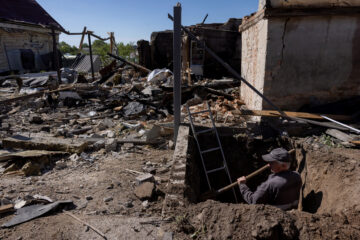Former Israeli prime minister Ariel Sharon dies
Sharon is perhaps best remembered as a tough leader who spared no action to defend Israelis. He oversaw Israel\’s 2005 withdrawal from the Gaza Strip.
Former Israeli Prime Minister Ariel Sharon has died at a hospital near Tel Aviv.
He was 85 years old and had been in a coma since 2006 when a stroke incapacitated him at the height of his political power.
"Ariel Sharon has passed away," said Shlomo Noy, a spokesman for Sheba medical center in Tel Aviv, where Sharon was being treated for most of the past eight years, on Saturday.
Officials at the hospital announced a week ago that Sharon\’s health had deteriorated sharply and that he was in "grave condition" with his family at his bedside.
"He was considered to be in a state of minimal consciousness, with ups and downs in his medical condition, and minimal non-verbal communication," Noy said.
Sharon first had a small stroke in December 2005 and was put on blood thinners before experiencing a severe brain hemorrhage on January 4, 2006.
After spending months in the Jerusalem hospital where he was initially treated, Sharon was transferred to the long-term care facility at Tel Hashomer hospital.
He was taken home briefly at one point but returned to the hospital, where he has remained since.
In September, Sharon underwent surgery to insert a new feeding tube.
Sharon was one of Israel\’s most iconic and controversial figures. As one of Israel\’s most famous generals, he was known for bold tactics and an occasional refusal to obey orders. As a politician he became known as "the bulldozer", a man contemptuous of his critics while also capable of getting things done.
A prominent hardline voice over the decades, he was elected prime minister in 2001.
In mid-2005, he directed a unilateral withdrawal of Israeli troops and settlers from the Gaza Strip, ending a 38-year military control of the territory.
It was a shocking turnaround for a man who had been a leading player in building Jewish settlements in captured territories.
He later left his hardline Likud Party and established the centrist Kadima Party.
He appeared on his way to an easy re-election when he suffered a stroke in January 2006.
His deputy, Ehud Olmert, took over and was elected prime minister a few months later.
Source: Agencies
[do_widget_area inner_adsbar]








